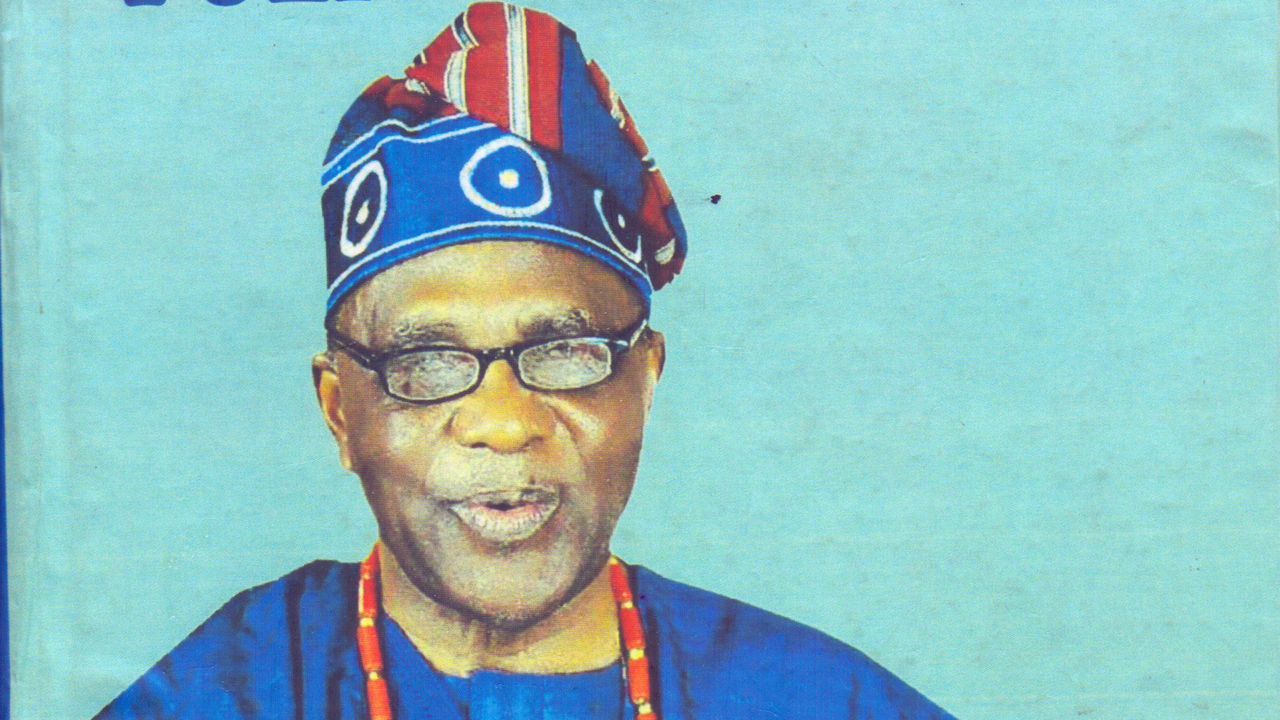 On the Journey to True Fulfilment is the autobiography of former chief executive, Federal Department of Agricultural Research, Dr. Oluremi Atanda. A detailed memoir, which spans eight decades, the book captures a chartered career path through a fulfilled life of an academic, administrator and politician.
On the Journey to True Fulfilment is the autobiography of former chief executive, Federal Department of Agricultural Research, Dr. Oluremi Atanda. A detailed memoir, which spans eight decades, the book captures a chartered career path through a fulfilled life of an academic, administrator and politician.
Meticulously etched in reminiscences, the book is written in chronological order beginning with his ancestry in Iwo, Osun State, to the University of Nottingham, a top-ranking British university, where he graduated with a first-class degree in biology. Thereafter, he proceeded to the University of Newcastle Upon- Tyne where he obtained his doctorate in September 1968.
Atanda’s brilliance, coupled with the grace of the Almighty, provided him with a distinguishing career in the plant , as well as exploits in the administrative and socio-political firmament.
His intellect impacted his foray into partisan politics, showing an unalloyed patriotism as reflected in his self-effacing political adventure.
Published in 2018, the Atanda autobiography has 636 pages, 19 chapters, a foreword of four pages, a preface written by the author and an index of 11 pages. His publishers are Phaloray Book Works, Oluyole Estate, Ibadan, Nigeria.
This review is divided into four parts, first, his ancestry; second, his education; third, his career and finally, his retirement into politics and self-employment.
During his career, Atanda was either a director or chief executive of most of the research institutes in the federation. His research publications cover diverse areas from the Institute of Agriculture Research and Training, Nsukka, Research Institute, Balgore, India to Nigeria Seed Service, IITA, Ibadan.
To date, he has 45 research and nine non-research publications. This was climaxed by his appointment as Editor of the Fifth Cocoa Research Conference in 1075. He was a consultant on tree crops, rice and maize to the Food and Agricultural Organisation of the United Nations.
Atanda’s foray into politics began with an invitation from Chief Obafemi Awolowo in November 1979. He was the chief executive at the Forestry Research Institute of Nigeria, Ibadan, at the time.
“His driver was ushered into my office. He told me that Papa Obafemi Awolowo would like to see me as early as possible. No specific time was mentioned.”
Atanda felt humbled by the invitation. Immediately, he guessed it was in connection with his proposed appointment as chairman, Civil Service Commission of Oyo State. The following morning, he drove alone to the Oke Bola, Ibadan residence of Awolowo residence at Ibadan.
“My name had been put on the visitor’s list. As soon as I entered, I saw Pa Awolowo, Prof Oyediran, his son- in- law and an elderly man, who spoke in Egba dialect, seated. Pa Awolowo asked me to sit down… Almost immediately, his wife, Mama H.I.D, came in with a tray of assorted dishes albeit without meat. I then knew that he was a vegetarian. She left us and came again with another tray of other foods that complemented the first set. I noticed there was no house-help of any sort to assist Mama. She did everything on her own. To me, that was a demonstration of rare humility and simplicity.”
Then, Atanda averred that Awolowo threw the passing shot at him saying: “Look, see this young man? He has been offered a unique appointment on a platter of gold but he is refusing to accept it… How old are you? Forty by September this year, sir. You are not yet 40 and you are being offered an appointment for a 70-year-old.”
Atanda had no response to that statement. Prof. Oyediran then intervened, saying “If I were invited to come and be the chairman, Civil Service Commission of Kwara State, I will readily accept.”
Awolowo then told Atanda that the governor had no power whatsoever over him as chairman, that the commission was autonomous and the only thing that could take him to the governor was the defence of the commission’s budget.
Awolowo added, “although it involves politics, no one would bring an opponent from another party to be chairman of this all-important commission.”
If he were to choose a role model in the Nigerian political scene, he would boldly and without equivocation say that Chief Bisi Akande is his choice. “He leads the pack. To me, a personification of chutzpah, endowed with enormous audacity, guts, boldness, and temerity. This statement remains inviolable and sacrosanct with me. Babatunde Fashola, a former governor of Lagos State, hopefully, seems to impress me strongly too.”
On Atanda’s assessment of Akande, I humbly concur. As Akande averred in his autobiography, he is one of the few Nigerian leaders who acknowledge the utter wickedness of the average Nigerian. The inability to give a correct assessment of the Nigerian character is the reason Nigeria is drifting towards failure.
Since the average Nigerian leader is insincere, there is no way he can make correct decisions. Atanda’s assessment of Fasola has been made obsolete by his poor performance in power ministry. If Nigeria is to stray from the precipice, we cannot elect those who have failed in the past. Technology has made all experience obsolete.
Oluremi Atanda, the author, is an interesting personage. I respect his great intellect, creativity, and patriotism. I commend this work. It is a history of Nigerian politics and society since independence.






